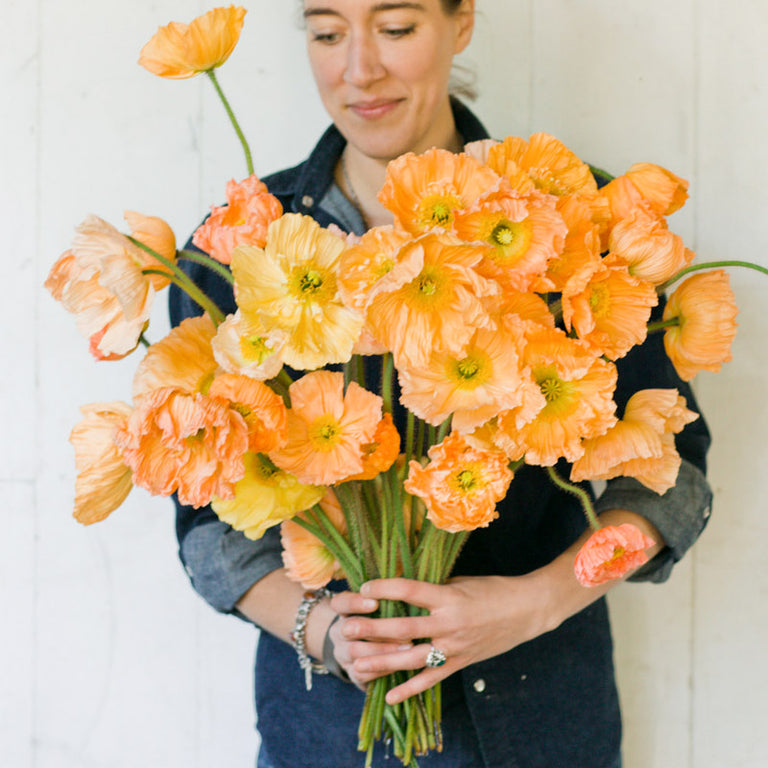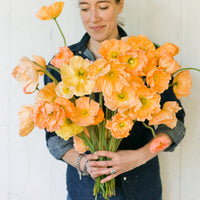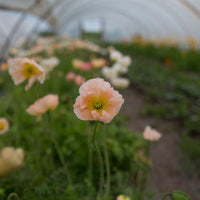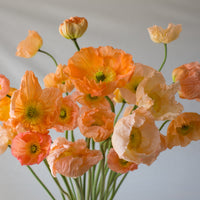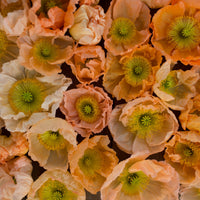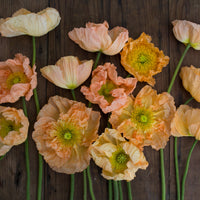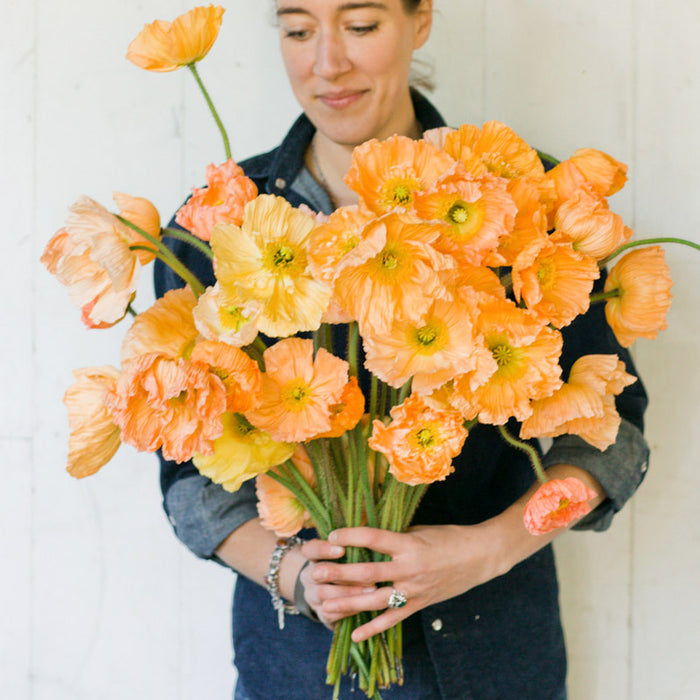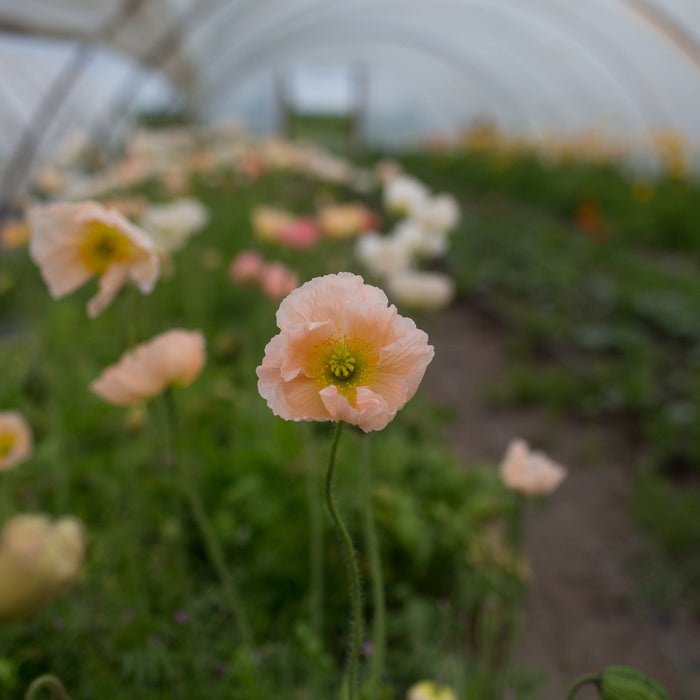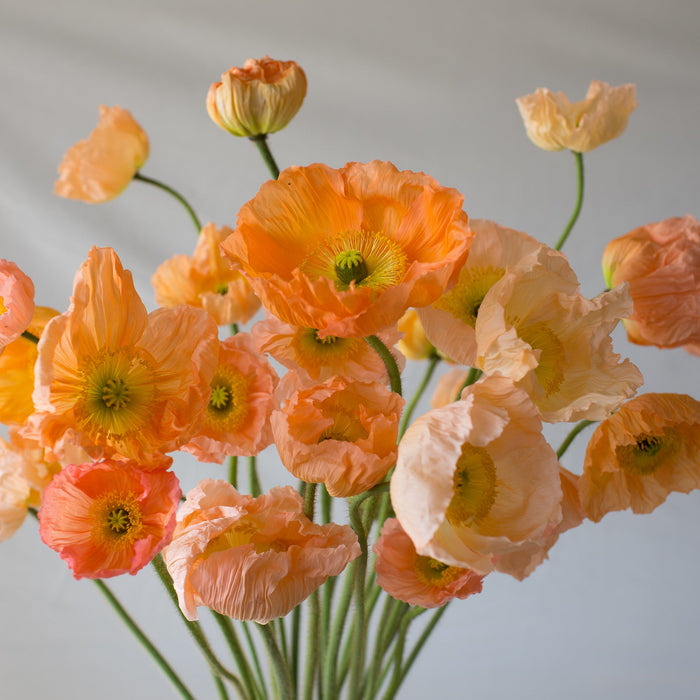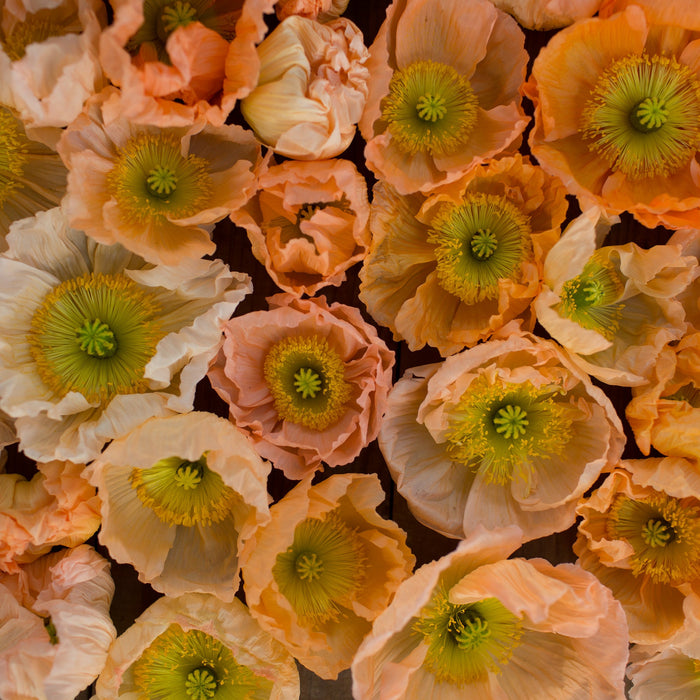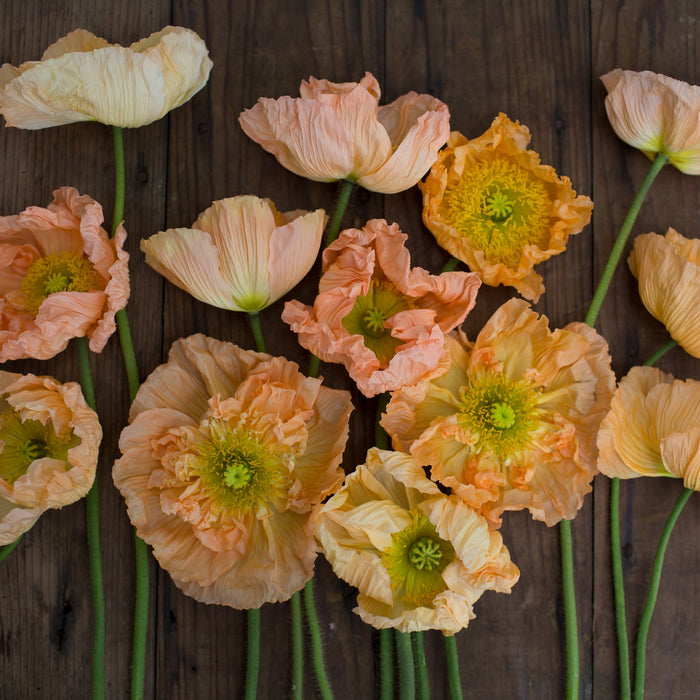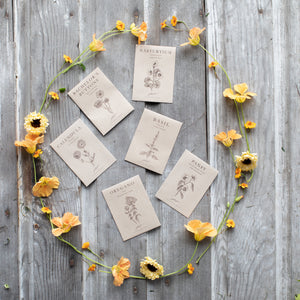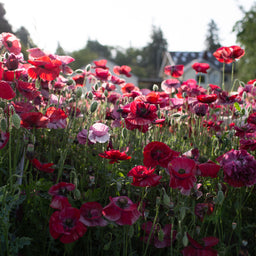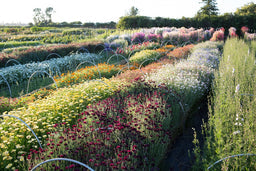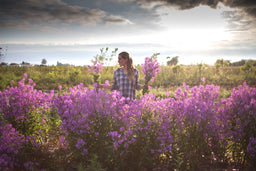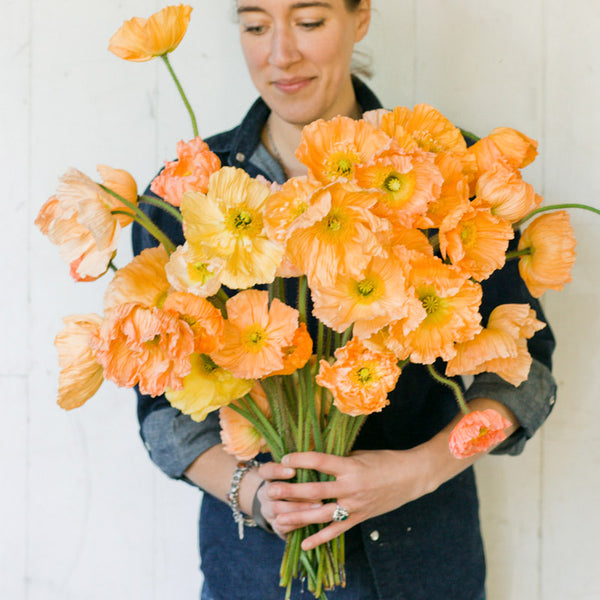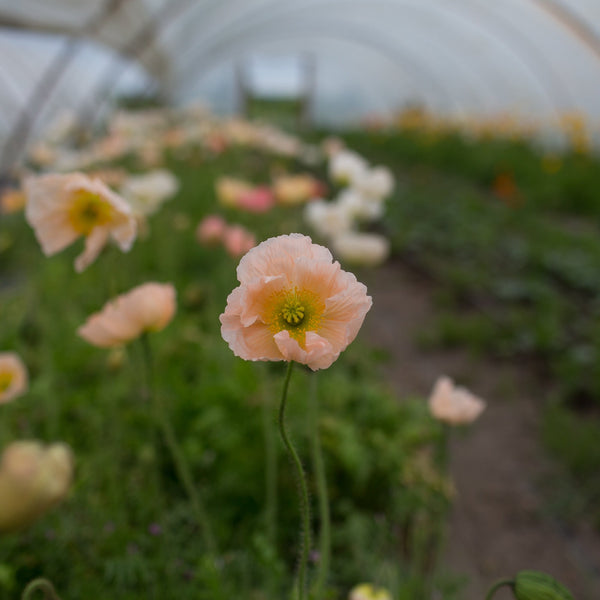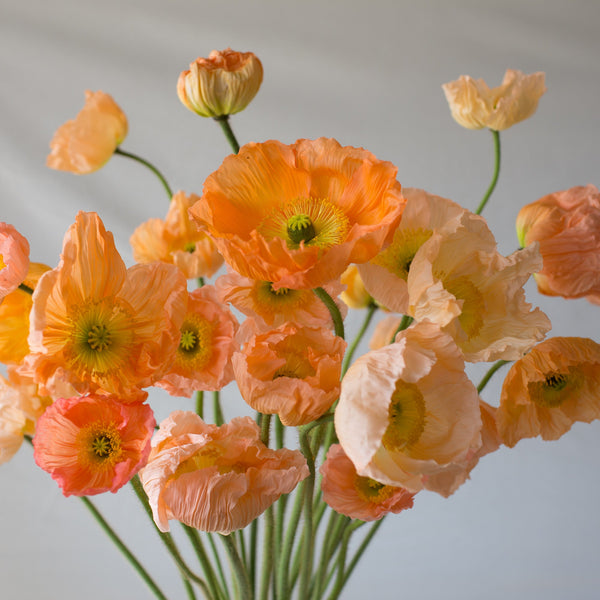Iceland Poppy ‘Colibri Salmonato’
Papaver nudicaule
Description
One of the most exquisite cut flowers we grow, these peachy tissue-paper-like blooms are heartbreakingly beautiful. A citrusy scent and abundant flowering habit stretching from early spring through midsummer make them a highly prized cutting garden addition. Technically considered a hardy perennial, poppies can survive even the coldest winters, but because they don’t do well in high heat, they are often grown as a hardy annual or biennial.
Details
Height: 15 to 18 in
Site: full sun
Days to maturity: 100 to 120 days
Plant spacing: 9 in
Pinch: not necessary
Seed Sowing & Growing Notes
If you’re growing as a biennial, start seed indoors in trays in late summer and transplant into the garden in the fall. If you’re growing as an annual, start seed indoors in trays 8 to 12 weeks before last frost and transplant out after all danger of frost has passed. Seeds are very small; bottom-watering is recommended until plants emerge.
Harvesting/Vase Life
Details
Description
One of the most exquisite cut flowers we grow, these peachy tissue-paper-like blooms are heartbreakingly beautiful. A citrusy scent and abundant flowering habit stretching from early spring through midsummer make them a highly prized cutting garden addition. Technically considered a hardy perennial, poppies can survive even the coldest winters, but because they don’t do well in high heat, they are often grown as a hardy annual or biennial.
Details
Height: 15 to 18 in
Site: full sun
Days to maturity: 100 to 120 days
Plant spacing: 9 in
Pinch: not necessary
Seed Sowing & Growing Notes
If you’re growing as a biennial, start seed indoors in trays in late summer and transplant into the garden in the fall. If you’re growing as an annual, start seed indoors in trays 8 to 12 weeks before last frost and transplant out after all danger of frost has passed. Seeds are very small; bottom-watering is recommended until plants emerge.
Harvesting/Vase Life
Sources
How to Grow
How to Grow
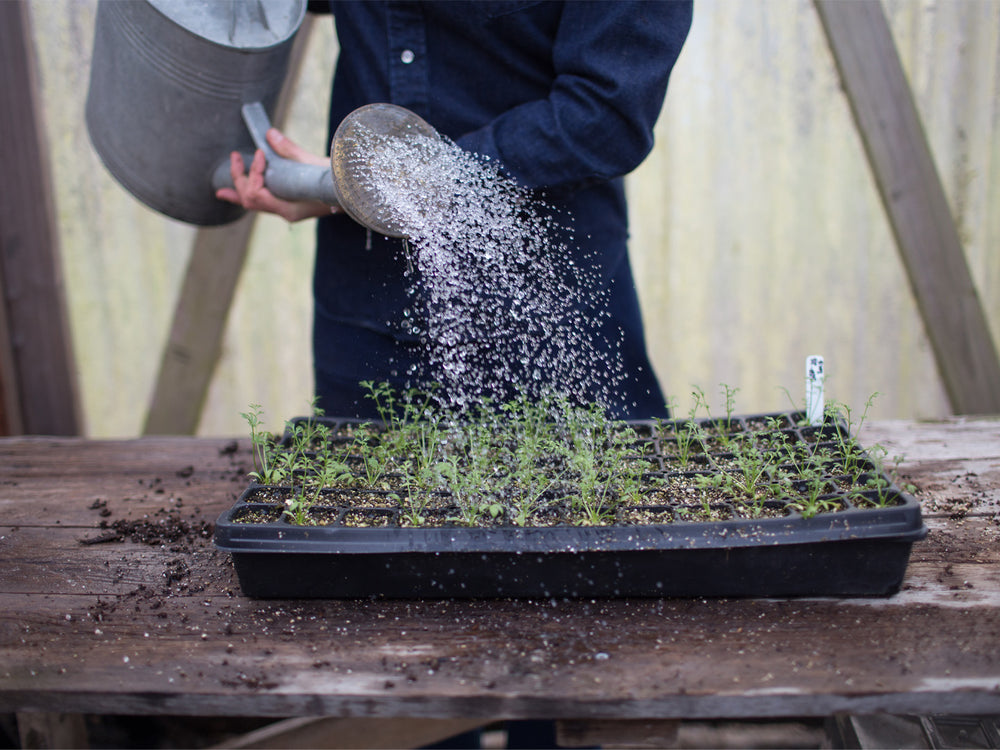
Winter Mini Course: Seed-Starting 101
Learn how to start flowers from seed in this three-part video series
In this free video series, you’ll learn everything you need to know to successfully start flowers from seed, including all of the necessary supplies, step-by-step instructions, special tips and tricks, and how to create a simple indoor seed-starting area.
